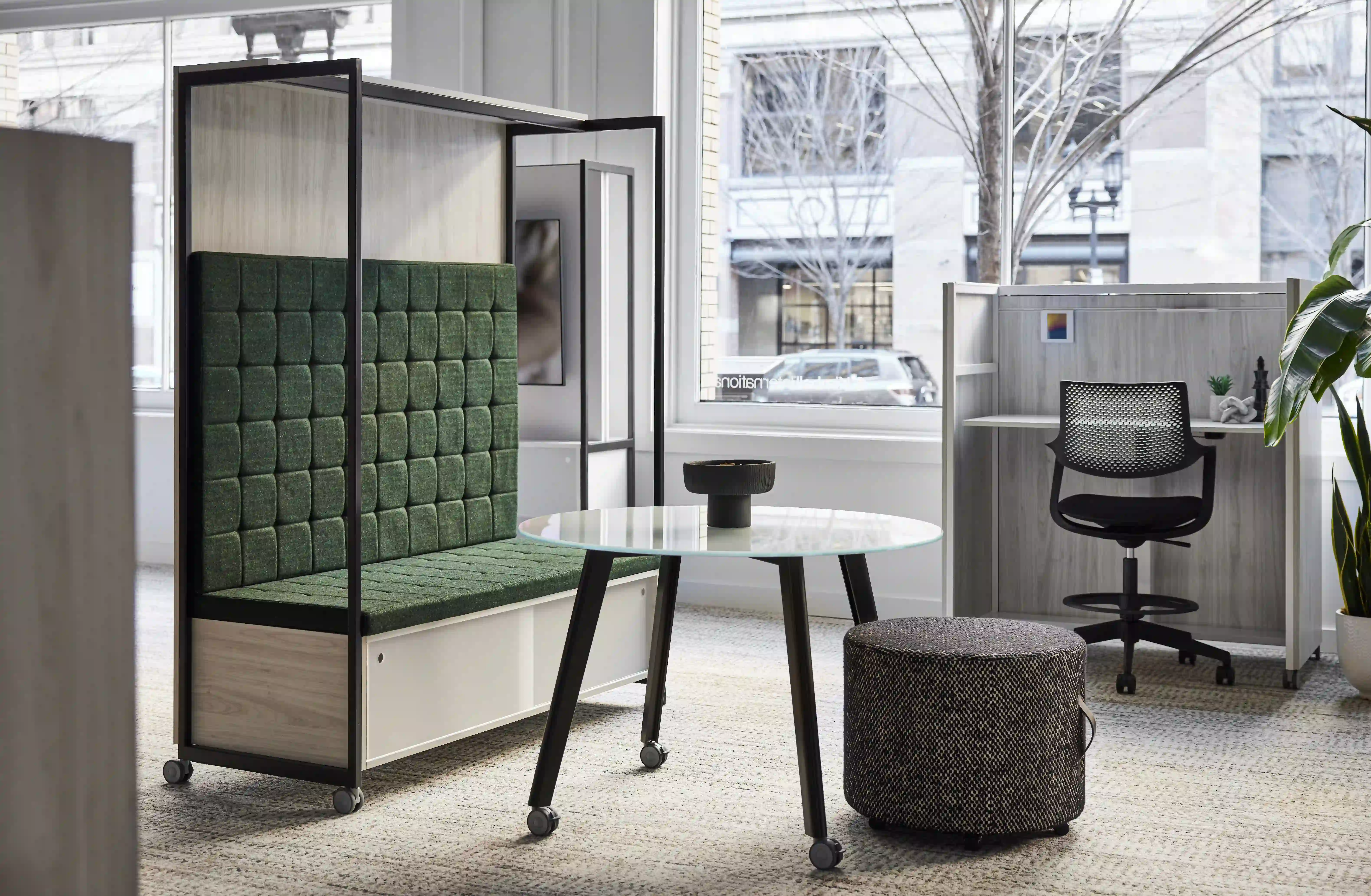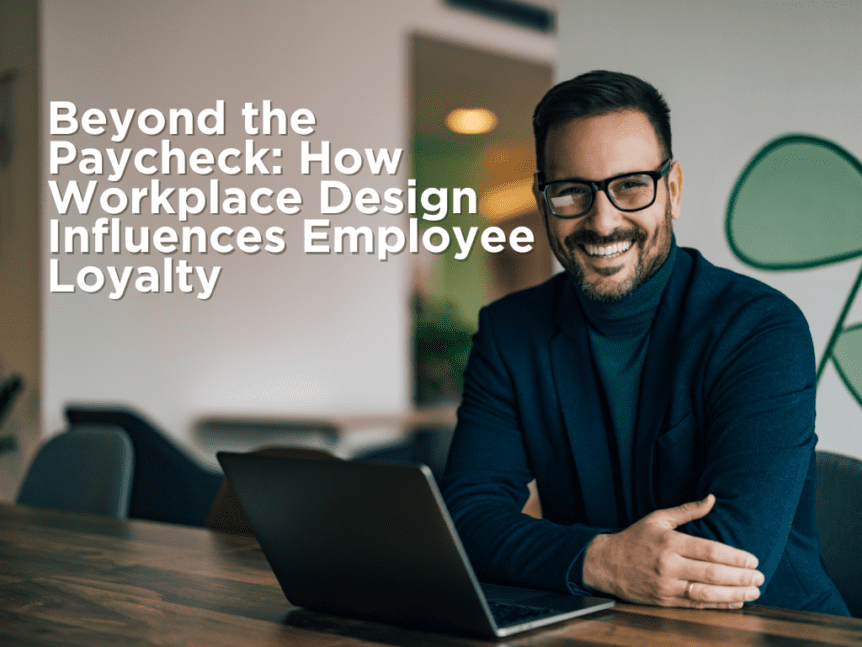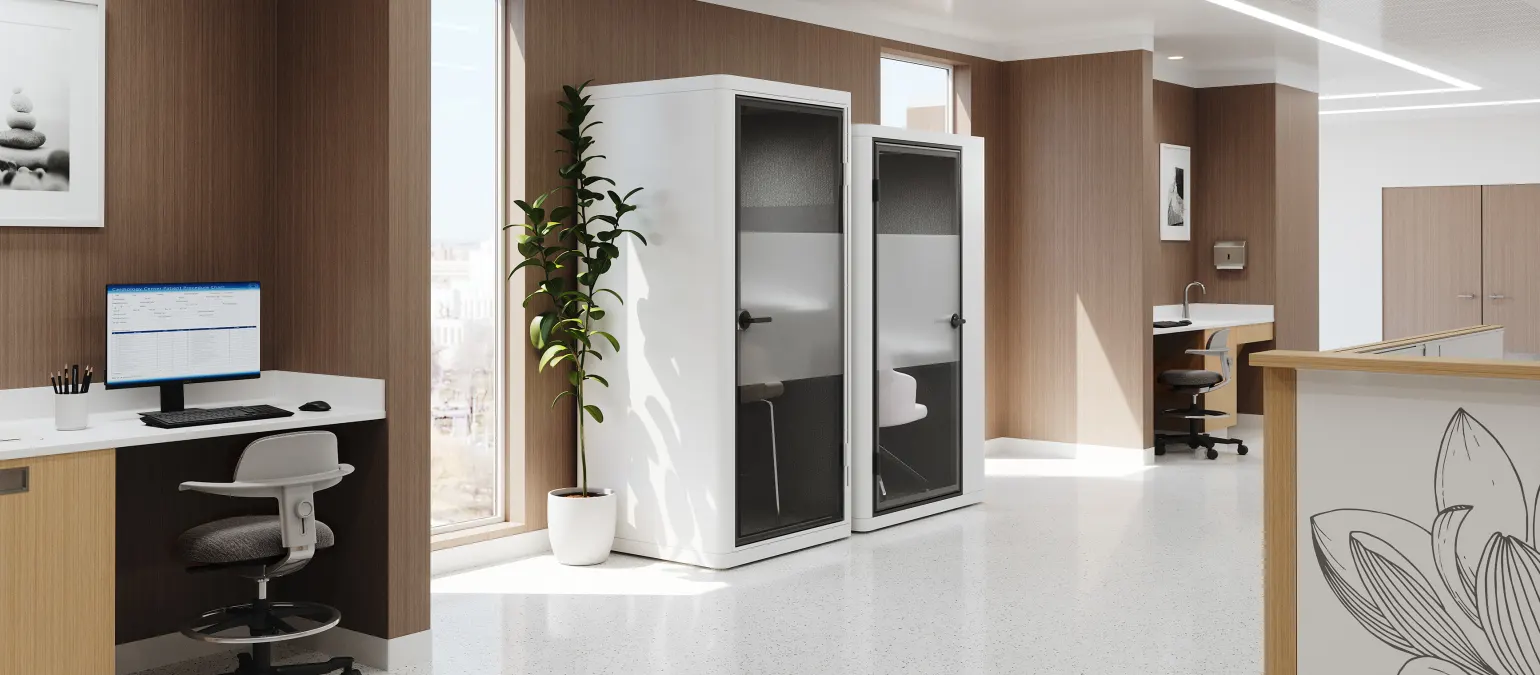Let’s be honest—where we work plays a huge role in how we feel about our jobs. It’s not just about the paycheck or the benefits; it’s about the experience we have every single day. Walking into an office that feels vibrant, functional, and inviting can make us feel excited to start our workday, while a cold, uninspiring, or uncomfortable environment can make even the best job feel draining. A well-designed workspace has the power to foster creativity, boost morale, and enhance collaboration, making employees feel more connected to their work and their colleagues.
The truth is, workplace design isn’t just about aesthetics—it directly affects our productivity, mood, and even our decision to stay with a company long-term. Companies that understand this invest in spaces that support both focus and relaxation, ultimately creating an environment where employees want to stay and thrive.
Think about the best workspace you’ve ever worked in. Was it filled with natural light? Did it have comfy chairs and enough space to move around? Now, compare that to an office that felt cramped, dark, or just plain boring. The difference is huge, right?
A well-designed office isn’t just about looking good—it’s about making sure employees feel good. When we’re comfortable, have the right tools, and can collaborate easily, we’re more likely to enjoy our work and stay committed to the company.
Nobody wants to feel like they’re working in a lifeless cubicle farm. Offices that incorporate warm lighting, plants, and flexible seating make a world of difference. When the space feels inviting, it’s easier to settle in and focus. Plus, having areas where we can take a break, chat with colleagues, or just breathe for a second helps reduce stress and improve overall happiness.
A well-thought-out break area can make a huge difference. Having a space to step away from work, enjoy a cup of coffee, or even play a quick game with coworkers can refresh the mind and help boost creativity. It’s not just about taking breaks—it’s about returning to work feeling recharged.
We all work differently. Some of us thrive in open, collaborative spaces, while others need quiet corners to concentrate. The best workplaces offer a mix—open areas for teamwork, private nooks for deep focus, and even spots to relax and recharge. When we have the freedom to choose where and how we work, it makes the job feel less like a grind and more like a place where we can actually be productive and happy.
Remote and hybrid work models have made flexibility even more important. Companies that embrace adaptable workspaces and integrate technology for seamless virtual collaboration create an environment where employees feel supported, no matter where they work. Having the right setup—whether it’s ergonomic home office furniture or well-designed co-working spaces—can make a big difference in job satisfaction.
Let’s face it—work is more enjoyable when you actually like the people around you. A well-designed office helps create a sense of community. Whether it’s cozy meeting rooms, lounge areas, or spaces designed for casual chats, these little touches make it easier to connect with coworkers. And when we feel connected, we’re less likely to start browsing job listings.
One of the biggest challenges of modern workplaces is balancing collaboration with focused work. Open-plan offices can encourage communication, but they can also be distracting. That’s why having a mix of collaboration zones and quiet areas is key. Providing employees with options lets them choose the best space for the task at hand, reducing frustration and boosting efficiency.
A company that cares about its employees’ well-being doesn’t just talk about it—it shows it. Simple things like ergonomic chairs, standing desks, and wellness rooms show that the company values our health. Even better? Offices that provide access to outdoor spaces or incorporate greenery make a huge difference in reducing stress. Feeling good at work isn’t just about the tasks we do—it’s about the environment we do them in.
Mental health is just as important as physical health. Workplaces that offer quiet spaces for meditation, on-site fitness facilities, or even programs that encourage movement throughout the day show employees they are valued. Small changes—like offering healthy snacks, encouraging walking meetings, or even allowing pets in the office—can have a surprisingly big impact on morale and retention.
The Future of Workplace Design


As businesses continue to evolve, so do office spaces. More companies are embracing designs that focus on sustainability, well-being, and adaptability. Eco-friendly offices with energy-efficient lighting, recycled materials, and green spaces not only benefit the environment but also create a healthier workspace for employees.
Technology also plays a major role. Smart offices that allow employees to control lighting, temperature, and even desk height through apps create a personalized experience that enhances comfort and productivity. Companies that invest in workplace innovation are showing their employees that they’re committed to providing the best possible work environment.





